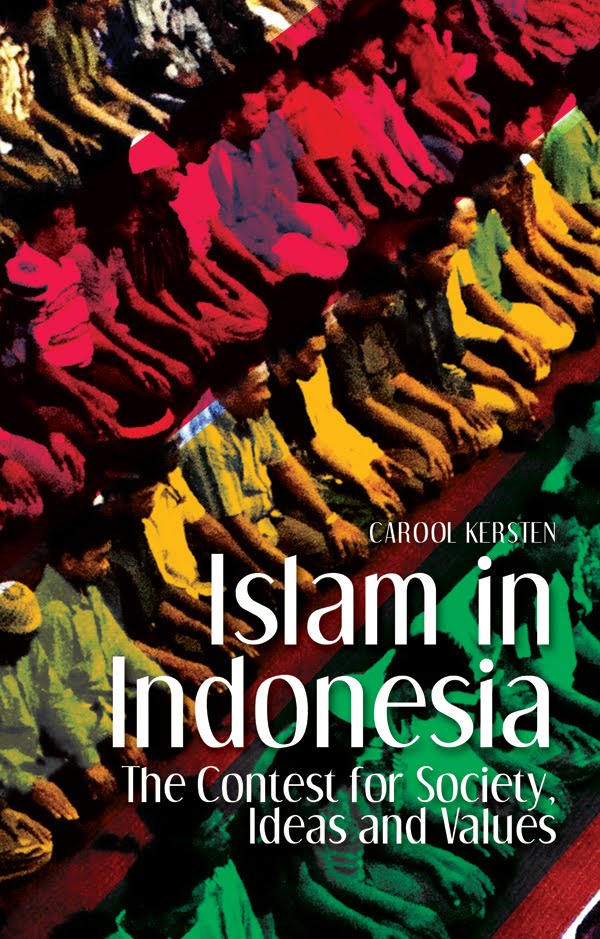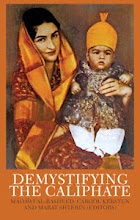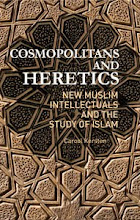Turkey's profile on the world stage has been undeniably heightened through a flurry of activities in international diplomacy. Master-minded by foreign minister Ahmet Davutoğlu, it is indicative of a more assertive Turkish foreign policy. An academic-turned diplomat, Prime Minister Erdoğan's chief international policy advisor carefully handles the Iraq dossier, engineered the rapprochement with Syria and Armenia, mediated in the Israel-Gaza conflict of 2008, and brokered, together with Brasil, a deal on Iran's Nuclear programme. Based on this track record he has already been dubbed 'Turkey's Henry Kissinger'. It has led to a growing attention in both Turkish and international media not only for the man (more here, here, and here), but also for the recalibration of Turkish foreign policy (see the recent coverage in The Economist, Foreign Policy, The Globalist, Newsweek, and New York Times).
Although he rejects the designation 'neo-Ottomanist'* -- preferring to talk instead of 'Strategic Depth' (also the title of one of his books) -- Davutoğlu's activist regional policy reflects the elan underlying the AKP's broader political ethic, which betrays an unmistakable re-appreciation for Turkey's Ottoman legacy. This reorientation has actually been in the making since the early 1980s when the then Prime Minister Turgut Özal managed to coax the uncompromisingly secular military establishment towards the idea of a 'Turkish-Islamic Synthesis' or TIS for short (see also my post of 8 May 2010). Since then, some analysists have ventured that the TIS is now even embraced by right-wing nationalist parties such as the MHP to wrest power away from the AKP.
Although there has never been any formal acknowledgment from both sides, the AKP's reorientation away from the explicit Islamist agendas of predecessors such as the Welfare, Virtue, and Felicity Parties is inspired by the ideas of the somewhat enigmatic Fethullah Gülen, whose spiritual guidance has significantly impacted not only on leading figures in the AKP, but also on the outlook of much wider segments of Turkish society. The organization that bears his name, but to which -- again -- the man himself claims to have no official affiliation, has been tremendously successful in building up what can, for the lack of a better word, be called a very wide civil society network both inside Turkey and abroad, encompassing educational institutions (from nurseries to universities), a media conglomerate, charities, and platforms connecting academics and other intellectuals, diplomats, interfaith activists, business people, etc. The extent of the movement's influence is difficult to gauge, but speculations are that its compounded resources are in the hundreds of millions if not billions of dollars. For this the Gülen Movement can drawn on a large pool of donors and other benefactors who made their fortunes in the economic boom that began in the 1980s and led to the rise of the 'Anatolian Tigers' -- the outcome of business initiatives deployed by urban and small-town entrepreneurs from Turkey's main cities and the rural interior.
Now there are appear to be signs of a rift as Gülen, in a very rare interview with the Wall Street Journal, criticizes the organizers of the flotilla, saying that their failure:
Given the Turkish Prime Minister's very critical remarks in the direction of Jerusalem, reigniting the earlier tiff caused by his rebuff of Israeli President Shimon Peres and the Davos Economic Forum in 2009, Gülen's statements are interpreted as veiled criticism of the government's line towards Israel. Consequently:to seek accord with Israel before attempting to deliver aid "is a sign of defying authority, and will not lead to fruitful matters."
Mr. Gülen's views and influence within Turkey are under growing scrutiny now, as factions within the country battle to remold a democracy that is a key U.S. ally in the Middle East. The struggle, as many observers characterize it, pits the country's old-guard secularist and military establishment against Islamist-leaning government workers and ruling politicians who say they seek a more democratic and religiously tolerant Turkey. Mr. Gülen inspires a swath of the latter camp, though the extent of his reach remains hotly disputed.
His words of restraint come as many in Turkey gave flotilla members a hero's welcome after two days of detention in Israel. Prime Minister Recep Tayyip Erdogan of the ruling Justice and Development Party condemned Israel's moves as "bullying" and a "historic mistake."
This intervention has led to renewed speculations over Gülen's influence and intentions, with the Wall Street Journal observing that 'Mr. Gülen has long cut a baffling figure, as critics and adherents have sparred over the nature of his influence in Turkey and the extent of his reach'. It notes that, on the one hand, he is recognized as a moderate figure propagating non-violence and advocating dialogue between the Muslim world and the West, while on the other hand his 'detractors see him as a cult-like leader whose empire aims to train an Islamic elite who will one day rebuild the Turkish state'. The New York Times followed suit with its own assessment of the movement's influence, citing studies by John Esposito and Hakan Yavuz.Mr. Gülen said he had only recently heard of IHH, the Istanbul-based Islamic charity active in more than 100 countries that was a lead flotilla organizer. "It is not easy to say if they are politicized or not," he said. He said that when a charity organization linked with his movement wanted to help Gazans, he insisted they get Israel's permission. He added that assigning blame in the matter is best left to the United Nations.
Suspecting such sinister designs is an author writing under the pen name Spengler who, in a piece entitled Fethullah Gulen's cave of wonders', portrayed Gülen as 'a shaman, a relic of pre-history preserved in the cultural amber of eastern Anatolia'.
Such diverging opinions are indicative of the fascination commanded by figures like Fethullah Gülen. Articulating alternative Islamic discourses they differ from the exponents of existing traditionalist, reformist and modernist strands of Muslim thought, thus challenging the corresponding conventional and ingrained views of Islam held by outsiders, and -- perhaps most significantly -- undermining the stale authority structures prevailing in many parts of the Muslim world but called into question by increasingly assertive and sophisticated critical Muslims.
* For more on Neo-Ottomanism (pro & contra), click here, here, here, or here).
For a selection of books on Gülen and current Turkish foreign policy click on the images below.






















